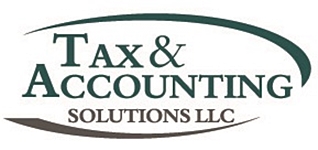Tax-Saving Strategies: Make a Move Now
It’s always a good idea to look for ways to minimize your tax liability. Taking advantage of opportunities before the year comes to a close is a smart move. Here are a few things to think about:
- Are you making the maximum contribution to your §401(k), IRA or other retirement plans? If the answer is no, think about increasing your contribution percentage between now and the end of the year. Not only will this increase your retirement savings, but it could also potentially lower your taxable income. If you are age 50 or older, you are eligible to make additional “catch-up” contributions. Contributions to retirement plans must be made by December 31. IRA contributions can be made up to the due date of your tax return, generally April 15.
- Are you around age 70? Don’t forget that you must start taking regular minimum distributions (RMDs) from your traditional IRA by April 1 following the year in which you reach age 70½. Failing to do so triggers a painful 50% IRS penalty on the amount you should have withdrawn. Each year thereafter, you must take your RMD by December 31 to avoid the penalty. Consider asking your IRA custodian to withhold tax from the payment; this could prevent you from having to make estimated tax payments. Also, remember that if you own a Roth IRA, you are never required to withdraw money from it.
- Did you have any capital gains during the year? If so, now may be a good time to consider selling some under-performing investments in order to generate a capital loss. Capital losses can offset capital gains. In addition, generally up to an additional $3,000 of capital losses may be deducted against your ordinary income per year with any additional losses carried to future years.
- Did you know that you can give a tax-free gift to a beneficiary of any age by putting money into a §529 education savings plan account? Generally, you can make a gift up to $15,000 per beneficiary per year or up to $30,000 for married couples, and you don’t even have to file a federal gift tax form! Under new tax laws, §529 plans can also be used to pay up to $10,000 of tuition annually for the beneficiary’s enrollment or attendance at a public, private or religious elementary or secondary school. Let’s plan ahead for those little ones!
- Do you have a favorite charity? Donations are still tax deductible if you itemize, but not if you take the standard deduction. If you give regularly to charities, consider putting several years’ worth of gifts into a donor-advised fund for the current year. This strategy may make it worthwhile for you to itemize this year while giving you the ability to spread out the giving over the next several years. Another way to boost a charitable deduction is to donate appreciated stock or property, rather than cash, to charity. If you have owned the asset for more than one year, you get a double tax benefit from the donation! You can deduct the asset’s fair market value on the date of the gift and you circumvent paying capital gains tax on any appreciation in value.
- Did you contribute to an employer’s flexible spending account (FSA) at the beginning of the year? These flex plans are a fringe benefit many companies offer where you can direct part of your pay into a special account that you can later use to pay child care or medical bills. The benefit is that the money contributed to the account avoids both income and Social Security taxes. However, the catch is that it’s a “use it or lose it” rule. So if you contributed to an FSA, make sure you use it all by year-end or you’ll forfeit the excess.
- Do you make state estimated tax payments or pay property taxes? If so, contemplate making an early payment before year-end. In general, the due date for fourth quarter state estimated tax payments is January of the following year. Yet, if you pay the fourth quarter estimated payment by year-end, you can deduct it in the current year. The same is true if you pay your next property tax installment before the end of the year (for a tax that has been officially assessed). This tactic only works if you are able to itemize deductions, you are not over the $10,000 state local tax limit and you are not subject to AMT.
Contact us to discuss how we can make these strategies work to your advantage before the end of the year rolls around!

